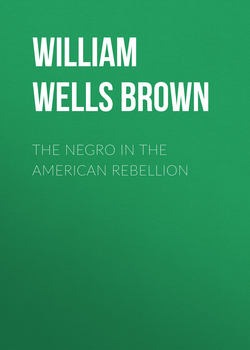Читать книгу The Negro in The American Rebellion - William Wells Brown - Страница 4
CHAPTER I – BLACKS IN THE REVOLUTIONARY WAR AND IN 1812
ANDREW JACKSON,
ОглавлениеMajor-General Commanding.
[Niles’s Register, vol. vii. p. 205.]
Three months later, Gen. Jackson addressed the same troops as follows: —
“To the Men of Color. Soldiers! From the shores of Mobile I collected you to arms. I invited you to share in the perils and to divide the glory of your white countrymen. I expected much from you; for I was not uninformed of those qualities which must render you so formidable to an invading foe. I knew that you could endure hunger and thirst, and all the hardships of war. I knew that you loved the land of your nativity, and that, like ourselves, you had to defend all that is most dear to man. But you surpass my hopes. I have found in you, united to these qualities, that noble enthusiasm which impels to great deeds.
“Soldiers! The President of the United States shall be informed of your conduct on the present occasion; and the voice of the Representatives of the American nation shall applaud your valor, as your general now praises your ardor. The enemy is near. His sails cover the lakes. But the brave are united; and, if he finds us contending with ourselves, it will be for the prize of valor, and fame its noblest reward.” —Niles’s Register, vol. vii. pp. 345, 346.
Black men served in the navy with great credit to themselves, receiving the commendation of Com. Perry and other brave officers.
Extract of a Letter from Nathaniel Shaler, Commander of the private-armed Schooner Gen. Tompkins, to his Agent in New York, dated, —
“At Sea, Jan. 1, 1813.
“Before I could get our light sails in, and almost before I could turn round, I was under the guns, not of a transport, but of a large frigate! and not more than a quarter of a mile from her… Her first broadside killed two men, and wounded six others…
“My officers conducted themselves in a way that would have done honor to a more permanent service…
“The name of one of my poor fellows who was killed ought to be registered in the book of fame, and remembered with reverence as long as bravery is considered a virtue. He was a black man, by the name of John Johnson. A twenty-four pound shot struck him in the hip, and took away all the lower part of his body. In this state, the poor brave fellow lay on the deck, and several times exclaimed to his shipmates, ‘Fire away, my boy: no haul a color down.’ The other was also a black man, by the name of John Davis, and was struck in much the same way. He fell near me, and several times requested to be thrown overboard, saying he was only in the way of others.
“When America has such tars, she has little to fear from the tyrants of the ocean.” —Niles’s Weekly Register, Saturday, Feb. 26, 1814.
